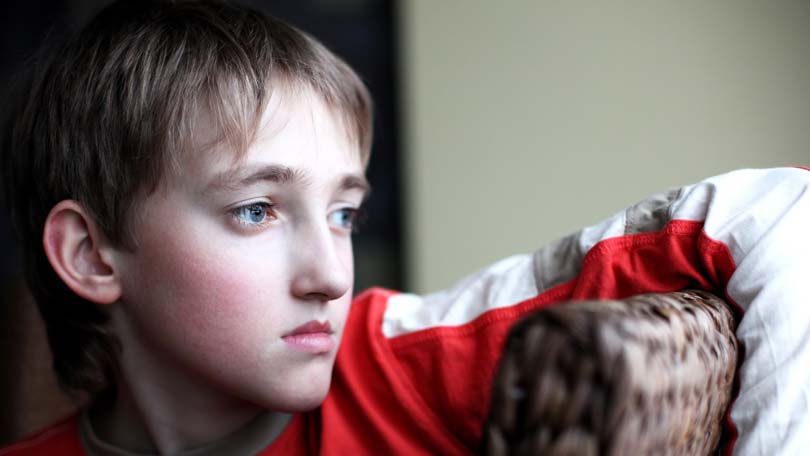
You decided to get a divorce. You and your spouse are the ones that could not make the marriage work. The important thing to realize beyond this for those of you that have a family, is that the children in the aftermath of a divorce should be put first and foremost. What so many couples don’t realize whether they are in the midst of an amicable divorce or a ‘war of the Roses,’ is that sharing the kids can be a nightmare for you and the children for a host of reasons.
One of the more popular ways that couples today are sharing custody, is trading off every other holiday and allowing kids to live with one parent for one week at a time, switching on Fridays. This can be fantastic if both of you live close to your child’s school district and have work schedules that allow for plenty of time off to take care of the kids. Trading holidays seem fair, until one holiday you (or your spouse) decide that it is an important year for the kids to be with you and your spouse disagrees. And, at the time of the divorce your lifestyle and circumstances may warrant decisions about custody that could change at any minute. For instance, when you signed the papers you were working day shift, and suddenly your work has switched you to night shift? Now what?
Life is unpredictable. Sitting down with an attorney and discussing the ins and outs of joint custody and sharing the kids is an important task that all parents need to take into consideration. Of course, BOTH parents want to remain an integral role in their child’s life despite a divorce that is certain to screw up the once ‘normal routine.’ And for many adults, this shuffling and sharing and switching on and off can create a nightmare for them and more importantly for the kiddos.
According to research and studies, children thrive the best when they remain in a predictable environment that they feel is safe and secure. When parents share custody in ways that are designed to make the actual quantity of time equal for both parents, the kids get thrust into a cycle of doing things moms way one week and dads way the next. This can also make communication difficult, and since both parents likely have different sets of rules the recoil after ‘the switch’ can be derailing for a child. Eventually, this can cause the divorced parents to argue more and more about what they think is best for the child.
Suffice it to say, that sharing children is hardly even easy.
Elaine O’Reily, founder of the Co families organization explains just how important it is that divorced parents learn how to co-parent after a divorce. When couples learn to co parent they enable their child to have healthy exposure to both parents, and ensure that the kids are able to maintain their role as children in the family, and not feel responsible for the emotions of the adults involved.
Essentially, she believes that the adults need to sit down with a rule book, a set of boundaries that will be shared valued in both households. The parents need to find ways to work together so that the comfortable routine of going to school, participating in activities and rules are fairly consistent in both households. Chances are that while a couple newly divorced may not see eye to eye, there are things that they agree with when it comes to raising the children. When parents can see past their personal problems and look to find common ground about what is best for the kiddos, then the kids can flourish after a divorce.
Additionally, while custody agreements can hold meaning of biblical proportions for parents who are going through a nasty divorce, being too strict, and not working with on another when necessary only hurts the children. Keeping the kids away from a spouse as a way to spite him or her, has nothing to do with putting the kids first, and always is a way for someone to get back at, or hurt or even scar their partner. Certainly, the rules of a custody agreement should be abided by as a general rule of thumb, but neither party should hold objections to circumstances that may make a rule change a good thing. For instance if the kids are with mom, but dads parents are coming into town withholding them hurts the children by not allowing them to have a relationship with their paternal grandparents.
Additionally, while both parents may want to spend equal time with the kids kids need, and deserve a schedule and a routine. This is often why it is better when parents can come to agreements that keep the kids on the same path in life, near their friends, attending the same school as before. When kids realize that the divorce didn’t turn their lives upside down, they can heal and move on from the reality of the split more quickly and with less emotional damage.
Sharing the kids can be a total and complete nightmare. However, with careful planning and a commitment to keep the kids needs first and foremost, it doesn’t have to be. Parents need to be willing to make changes to custody agreements, to bend the rules at time, to give a little if it is in the welfare of the children.
Adults need to realize that they made the decision together to bring the kids into the world. And that they are responsible for THEIR wellbeing above and beyond their own when it comes to parenting. The best thing that a couple can do for their child/ren is to learn to co-parent effectively, even if they don’t particularly like their spouse for personal reasons.





